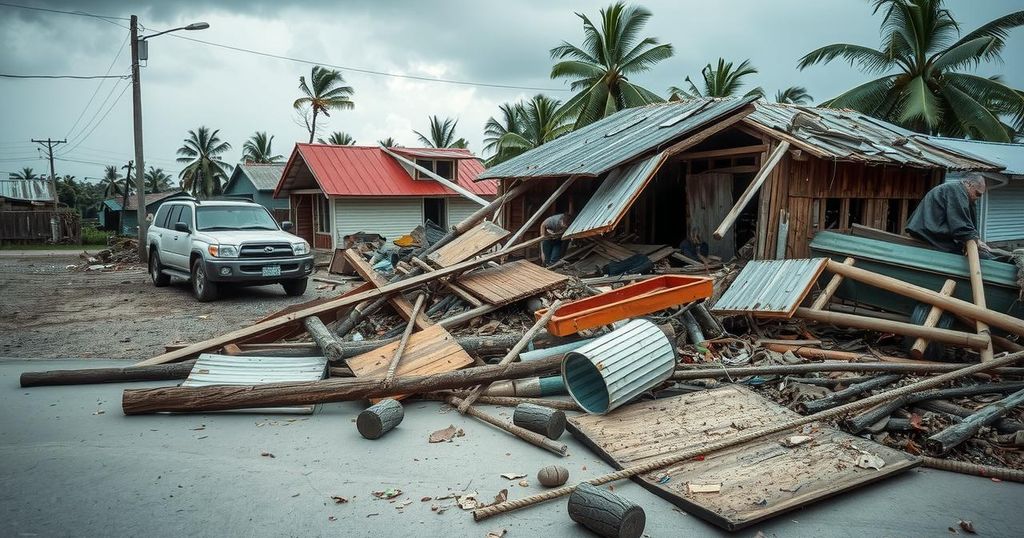Cyclone Chido Leaves 34 Dead and Causes Destruction Across Mozambique

Cyclone Chido has left at least 34 dead in Mozambique, causing extensive damage and displacing thousands. The storm has primarily affected Cabo Delgado, Nampula, and Niassa provinces, with ongoing concerns over casualties and the need for humanitarian assistance. Authorities emphasize the importance of disaster preparedness as relief efforts are initiated to support those impacted, especially vulnerable families and children.
Cyclone Chido has wreaked havoc across Mozambique, resulting in at least 34 fatalities as confirmed by the National Institute of Risk and Disaster Management. The cyclone struck the Northern province of Cabo Delgado and traveled through Nampula and Niassa, causing significant infrastructural damage. The storm, which made landfall with winds reaching 260 kilometers per hour, left thousands displaced and added to the existing vulnerabilities stemming from prior conflicts and underdevelopment in the region.
Despite being downgraded to a severe storm, heavy rains and strong winds continue to pose a threat to many communities. Authorities are urged to take precautions, emphasizing the importance of preparedness among the affected populations. Over 319 people have sustained injuries from the storm, with a dire impact on nearly 175,000 individuals, including the destruction of approximately 23,600 homes and 170 fishing boats.
As of now, Cyclone Chido is making its way through Mozambican territory, having already impacted areas in Malawi, and is projected to dissipate near Zimbabwe. The United Nations Children’s Fund has indicated that at least 650,000 children and their families are at significant risk. The crisis is further exacerbated by limited access to vital resources such as clean water and medical assistance.
In light of the tragedy, Luisa Meque, President of the INGD, has urged for heightened awareness and community engagement in disaster risk management, echoing sentiments from various humanitarian agencies calling for urgent aid to mitigate the disaster’s impact.
Cyclone Chido’s aftermath continues to unfold, underscoring the imperative for coordinated relief efforts and international assistance for the affected regions.
Cyclone Chido is a recent natural disaster that has severely impacted Mozambique, a country that has historically faced challenges from extreme weather events. The cyclone’s arrival coincided with existing vulnerabilities due to armed conflict and socio-economic underdevelopment in the northern provinces. The National Institute of Risk and Disaster Management has been actively monitoring the situation, and various organizations are mobilizing to provide assistance to those affected. Chido is noted not only for its intensity but for the significant humanitarian crisis it has precipitated, particularly concerning vulnerable groups such as children.
In summary, Cyclone Chido has caused extensive damage in Mozambique, resulting in a significant loss of life and infrastructure. The urgent need for humanitarian aid and disaster risk awareness has been highlighted by officials, emphasizing the importance of preparedness in the face of such natural disasters. The situation continues to evolve, with calls for international support to assist the most vulnerable populations, particularly children and families affected by this catastrophic event.
Original Source: www.rfi.fr








